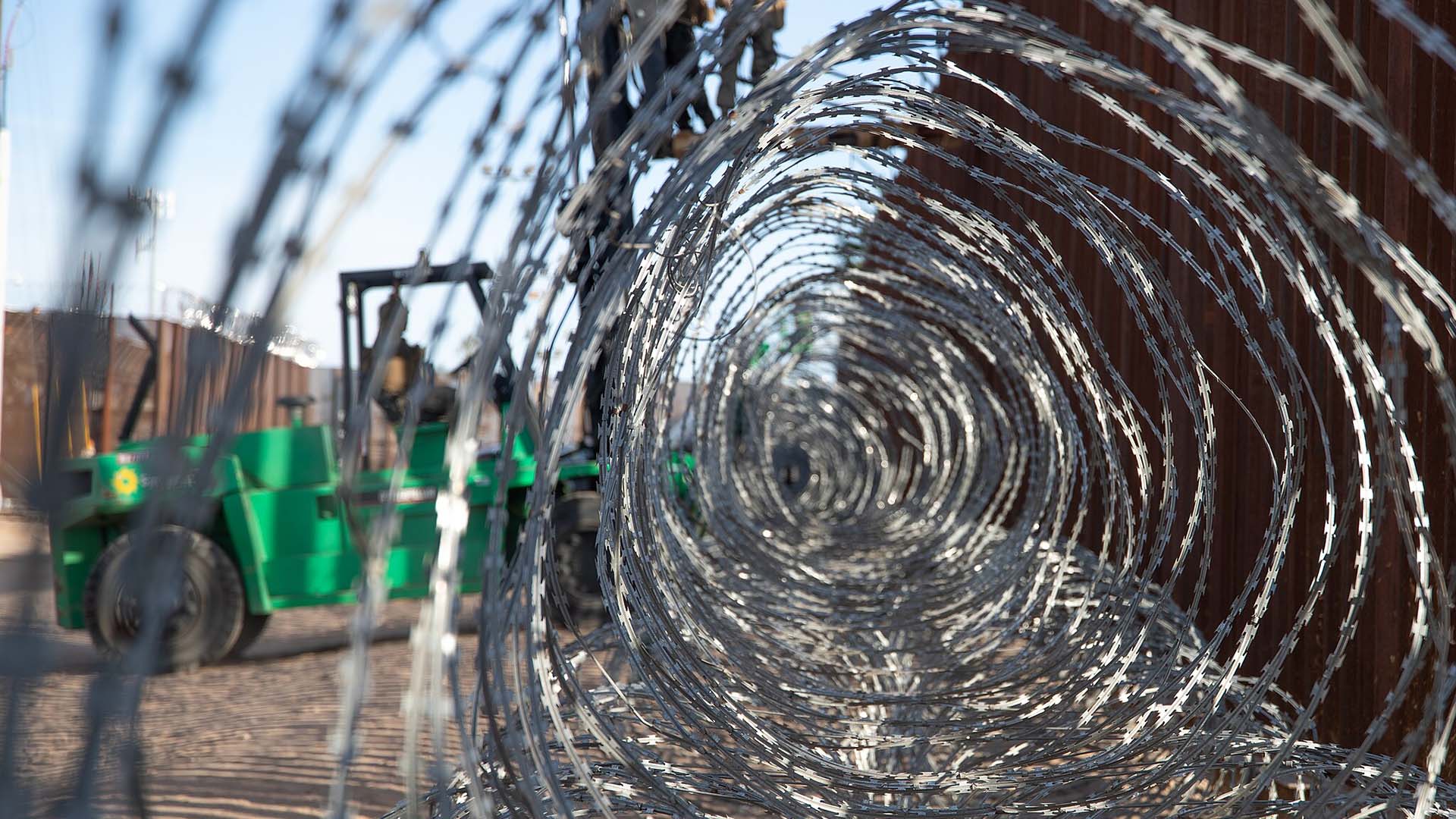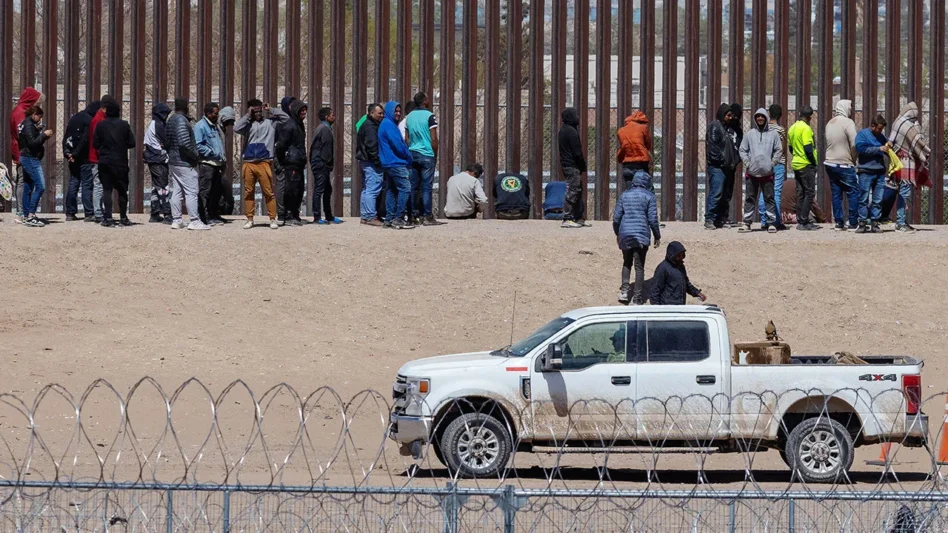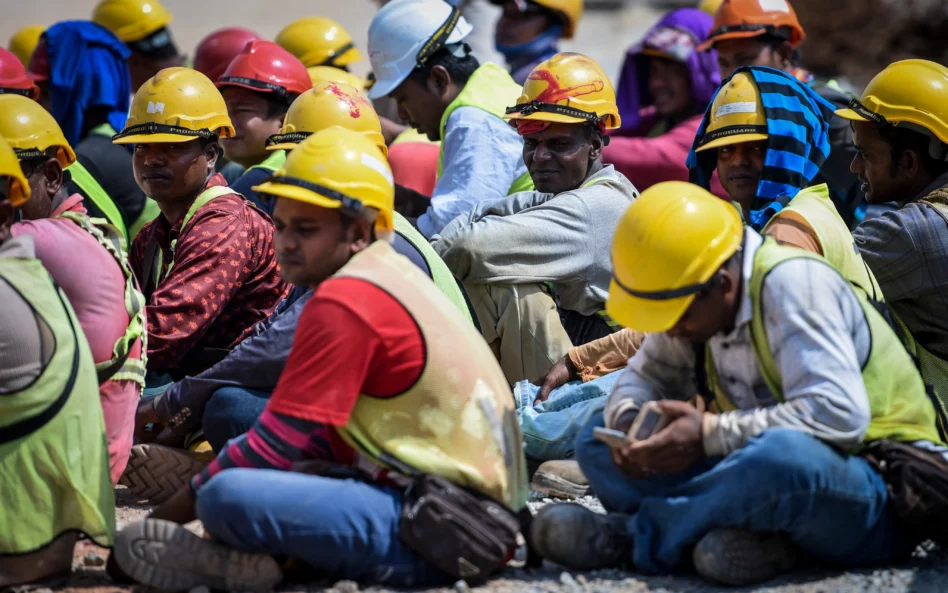
PERHAPS migration is as old as the origin of man on earth. People migrated for various reasons—from a voluntary migration in search of more habitable land to a forced migration due to imposed wars or for labour.
For whatever reasons, migration is still “relevant” for the same old reasons. However, the legal boundary of migration has changed.
Be it a voluntary migration for a better living or a forced migration because of an imposed war or ethnic cleansing, no one would cherish to migrate in other countries leaving behind their family and loved ones—unless they need to do so.
The ongoing deportation drive of illegal immigrants under the executive order of US President Donald Trump caught much global attention. It is rather expected that presidents or prime ministers would want to deport illegal immigrants from their countries.

One of the major concerns over millions of illegal immigrants is the cost of millions of dollars of negative revenue, especially in countries with social support.
However, the concern over illegal immigrants is much more than those bunch of migration aspirants who either illegally crossed the border to enter or stayed unlawfully in their dreamland of opportunity.
Neither the illegal immigrants know no abracadabra to suddenly appear in a land of opportunity nor do they have any Aladdin’s Genie to satiate their cravings while living in those lands of opportunity.
How they enter and how they survive in the land—all are mediated by syndicates of “legal” citizens of the countries of origin and the destination of the migration aspirants. As long as those syndicates remain untouched, the influx of illegal immigrants will continue to roll.
An estimated number of around 13 million illegal immigrants are living in the USA alone. The estimated number of irregular (illegal?) immigrants in 12 major European Union countries could be as high as three million and about one million in the UK.
That staggering high number of illegal immigrants did not pop up in one day. Years and perhaps decades of indulgence and lenity to infiltrate illegal immigrants resulted in this predicament.
According to the International Organisation for Migration (IOM), the number of documented migrant workers in Malaysia was about 2.2 million in 2022. The estimated number of migrant workers regardless of their documentation status could be as high as 5.5 million.
Migrant workers often face exploitation due to false promises by recruitment agencies and unclear roles between agents and employers, leading to vulnerabilities and, in many cases, undocumented status.

The illegal migration saga is like the Bermuda Triangle with three open-secret black markets of human trafficking which includes (1) a billion-dollar business of trafficking illegal immigrants operated by the syndicates of legal citizens; (2) the exploitation of illegal immigrants to operate criminal gangs including drug syndicates; and (3) a supply of illegal immigrants as cheap labour with low payment and without any employment benefits.
Needless to say, there is a considerable fraction of “legal” immigrants living in developed countries after being accused or proven guilty of political abuse and financial scandals in their home countries.
However, deportation of immigrants, both legal and illegal, more particularly those with criminal records is then rationally justified.
Nevertheless, finding a panacea for the peril of illegal immigrants might go in vain unless the Bermuda Triangle of the insistent illegal immigrant influx is controlled.
The drive against illegal migration is not limited to the USA—citizens of other developed countries have a similar vibe.
Generally speaking, people from countries that lack social, political, or economic stability venture their dreams into the lands of opportunities in the USA and Europe. Many are successful in their venture while a small number fail.
To put it in perspective of the ongoing deportation drive by the US government, there are about 18,000 Indians; 7, 000 Pakistanis; and 5,000 Bangladeshis on the list of deportation.
These numbers of illegal immigrants are far less than their fellow countrymen who are living legally in the USA.
Countries—citizens of which are being deported—need to focus on the repatriation of their citizens who were living illegally elsewhere.

Perhaps they may find it as a reverse brain drain and take this opportunity to bring back their citizens for their own good. It is not impossible to repatriate those illegal immigrants to their home country.
Simultaneously, a state-level drive is important to discourage and stop any forms of illegal channels to send their citizens to developed countries.
However, repatriation may not be easy for many other countries receiving a large number of their citizens living illegally in the USA, or for the countries who are politically and economically more vulnerable.
Not all illegal immigrants indeed become illegal because they opted to become so. Some are victims of syndicates of human traffickers and others just failed their legal battle to stay in their dreamland of opportunity.
While becoming illegal in those unexpected ways, they might have lost their time and resources. The decision to deport those illegal immigrants is morally or humanly controversial.
Therefore, the fate of the so-called illegal immigrants should not be based on personal whim or choice or a political pledge. It needs very careful consideration.
At the same time, curbing illegal immigrants is executed by deporting them, it is equally important to control the hidden syndicates of alluring and exploiting illegal immigrants.
Prof Mohammad is the Deputy Executive Director (Development, Research & Innovation) at International Institute of Public Policy and Management (INPUMA), Universiti Malaya.
The views expressed are solely of the author and do not necessarily reflect those of MMKtT.
- Focus Malaysia.



No comments:
Post a Comment
Note: Only a member of this blog may post a comment.